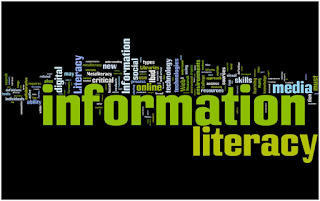I Am an African American Male Librarian or I’m Not Really Consumed in the (Servile Obedience to) Others: Part I
I am an African American Man.
I am a Librarian.
According to the American Librarian Association (ALA) about 572 of 110,000 credentialed librarians share those demographics (Davis & Hall, 2007 p. 9). Credentialed librarians have earned a masters degree in library and information science from an ALA accredited program. A credentialed part-time reference and instruction librarian at a suburban Michigan university, I am proud to be in an information profession.
Notice that I do not say “service profession”. I think those are redundant terms. Most professions have a service element. Doctors and nurses serve or facilitate the medical needs of their patients. Lawyers and paralegals serve or facilitate the legal needs of their clients. Usually these professionals are not paid just to practice a profession; they are paid to perform a service.
Librarianship seems the rare profession that defines itself mainly in the context of service. The Latin motto of Beta Phi Mu , the honor society for library and information science students, illustrates this focus: Aliis inserviendo consumer:Consumed in the service of others. If only those other professions would remember that they serve the needs of their clients.
But many librarians are often not perceived to be consumed in serving the information needs of others; they are considered “servile and self-effacing” (Einsenhower & Smith, 2010). A black man in a largely white and female profession, I cannot be servile and self-effacing. I cannot erase who I am, just to satisfy a stereotype. I am consumed, not in the service of others, but in the creation of an information culture that promotes critical thinking and agency. I am consumed by helping my patrons create new definitions of knowledge and build more effective relationships with information, which I consider socially constructed and politically informed. I want patrons to critique, confirm, or complicate authority as they construct their own knowledge. To me, this culture is the essence of what is commonly called information literacy.
I am consumed by that.
REFERENCES


Well said, Johnnie! I enjoyed reading your blog and loved when you wrote "I want patrons to critique, confirm, or complicate authority as they construct their own knowledge." The library profession has changed and leadership like the kind you provide will help define a new culture in information.
ReplyDeleteDiane Mick
MLIS WSU 2012
Well said Sir. I especially like your references to how the current vicissitudes in our profession are forcing us to rethink our roles. I find the stereotype of a white-woman dominated field interesting after coming across Dewey's article advocating for librarianship as a profession well-suited for white-women:
ReplyDeletehttps://docs.google.com/open?id=0B-T_J38LM3rRXzZSUTk0MFJWbDA
I was told that many may consider a librarian effeminate and boring. However I don't believe I fall in those categories. There are less than 600 Black Male Librarians; so who thinks of us when they picture a librarian in their head? No one I suppose. But we are here!